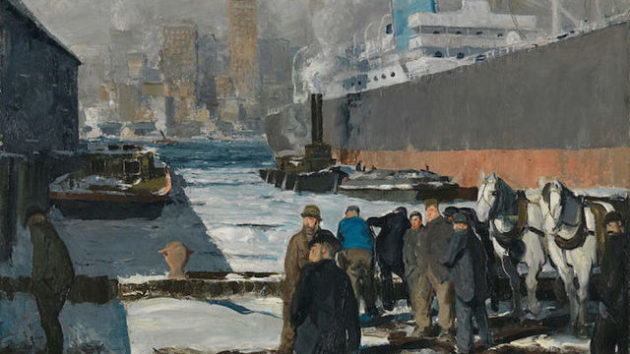The Recent Popes on Work and Workers
Pope St. John Paul II, and Pope Francis on work and working men and women. Work is fundamental.
The Church is convinced that work is a fundamental dimension of man’s existence on earth. She is confirmed in this conviction by considering the whole heritage of the many sciences devoted to man: anthropology, palaeontology, history, sociology, psychology and so on; they all seem to bear witness to this reality in an irrefutable way. But the source of the Church’s conviction is above all the revealed word of God, and therefore what is aconviction of the intellect is also a conviction of faith. The reason is that the Church-and it is worthwhile stating it at this point-believes in man: she thinks of man and addresses herself to him not only in the light of historical experience, not only with the aid of the many methods of scientific knowledge, but in the first place in the light of the revealed word of the living God. Relating herself to man, she seeks to express the eternal designs and transcendent destiny which the living God, the Creator and Redeemer, has linked with him.
The Church finds in the very first pages of the Book of Genesis the source of her conviction that work is a fundamental dimension of human existence on earth. An analysis of these texts makes us aware that they express-sometimes in an archaic way of manifesting thought-the fundamental truths about man, in the context of the mystery of creation itself. These truths are decisive for man from the very beginning, and at the same time they trace out the main lines of his earthly existence, both in the state of original justice and also after the breaking, caused by sin, of the Creator’s original covenant with creation in man. When man, who had been created “in the image of God. . . .male and female,” hears the words: “Be fruitful and multiply, and fill the earth and subdue it,” even though these words do not refer directly and explicitly to work, beyond any doubt they indirectly indicate it as an activity for man to carry out in the world. Indeed, they show its very deepest essence. Man is the image of God partly through the mandate received from his Creator to subdue, to dominate, the earth. In carrying out this mandate, man, every human being, reflects the very action of the Creator of the universe.
Work understood as a “transitive” activity, that is to say an activity beginning in the human subject and directed towards an external object, presupposes a specific dominion by man over “the earth,” and in its turn it confirms and develops this dominion. It is clear that the term “the earth” of which the biblical text speaks is to be understood in the first place as that fragment of the visible universe that man inhabits. By extension, however, it can be understood as the whole of the visible world insofar as it comes within the range of man’s influence and of his striving to satisfy his needs. The expression “subdue the earth” has an immense range. It means all the resources that the earth (and indirectly the visible world) contains and which, through the conscious activity of man, can be discovered and used for his ends. And so these words, placed at the beginning of the Bible, never cease to be relevant. They embrace equally the past ages of civilization and economy, as also the whole of modern reality and future phases of development, which are perhaps already to some extent beginning to take shape, though for the most part they are still almost unknown to man and hidden from him. – from John Paul II’s Laborem Exercens (1981)
Click here to read the rest of the popes’ words . . .
Robert Royal
 Robert Royal is editor-in-chief of The Catholic Thing, and president of the Faith & Reason Institute in Washington, D.C. His most recent book is A Deeper Vision: The Catholic Intellectual Tradition in the Twentieth Century, published by Ignatius Press. The God That Did Not Fail: How Religion Built and Sustains the West, is now available in paperback from Encounter Books.
Robert Royal is editor-in-chief of The Catholic Thing, and president of the Faith & Reason Institute in Washington, D.C. His most recent book is A Deeper Vision: The Catholic Intellectual Tradition in the Twentieth Century, published by Ignatius Press. The God That Did Not Fail: How Religion Built and Sustains the West, is now available in paperback from Encounter Books.
EDITORS NOTE: The featured image is a painting titled Men of the Docks by George Bellows, 1912 located in the National Gallery, Washington, D.C.



Thank you for this expose of how the Roman church observes work. It failed to mention that work or labor seems to have been installed by God as a punishment upon man for his disobedience in the garden of Eden. I guess this truth doesn’t fit with the lotti-dah of mangled words which one truly has to work at to understand. That being said, and I being Protestant, still believe the Protestant work ethic brought society to where it is today and that is worth noting the predominantly Protestant nations today are the free-est and most prosperous. No call for this piece on your site, Dr. Rich Swier, except for self gratification.